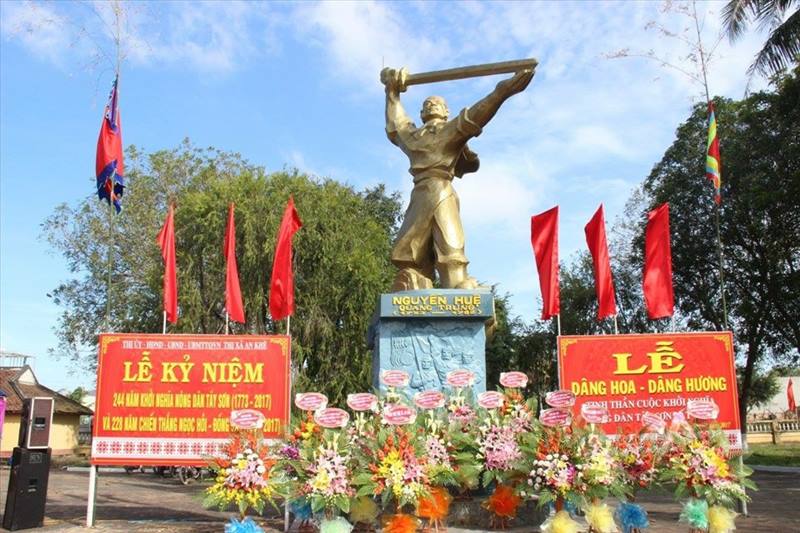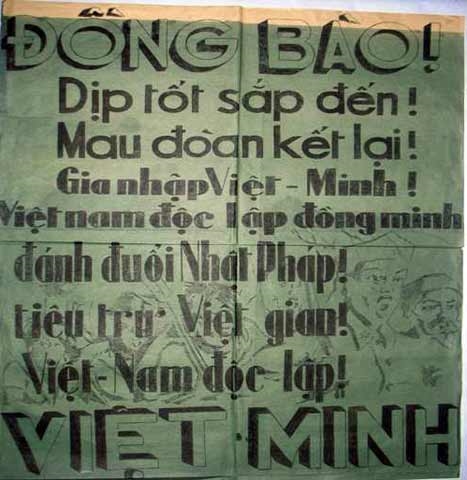1. Year of Tan Ty (981)
In the third lunar month, during the first resistance war against the Song army, the army and people of Dai Co Viet under the leadership of King Le Dai Hanh achieved resounding victories.
The Song navy led by Liu Cheng was defeated at the Bach Dang River. General Hou Renbao was beheaded at Binh Lo (Soc Son, Hanoi), and our army won a great victory at Tay Ket (Ha Bac). The enemy general Tran Kham To fled, while the two generals Trieu Phung Huan and Quach Quan Bien were captured alive and imprisoned in the capital Hoa Lu.
This defeat frightened the Song Dynasty and they ordered a ceasefire. The first resistance war against the Song ended with a brilliant victory.

2. Year of the Fire Snake (1077)
The Song Dynasty sent troops to invade Dai Viet for the second time, led by Quach Quy and Trieu Tiet. General Ly Thuong Kiet organized a solid defense line along the Cau River, preparing to block the enemy.
On January 18, 1077, the poem "Nam Quoc Son Ha" resounded on the Nhu Nguyet River, affirming national sovereignty. In the third lunar month, the Song army suffered heavy losses but could not break our defense line, forcing them to negotiate and retreat.
The second resistance war against the Song ended in victory. In September of that year, the Nhu Nguyet River dike, which was more than 134 km long, was reinforced by the royal court, ensuring security in the border area.

3. Year of the Fire Snake (1257)
The first resistance war against the Yuan-Mongol broke out when Ngo Luong Hop Thai mobilized 30,000 troops to invade our country. Faced with the enemy's strength, King Tran Thai Tong commanded the army to make a strategic retreat, implementing the "empty garden and empty house" plan to wear down the enemy's forces.
On December 24, our army counterattacked fiercely at Dong Bo Dau (Long Bien, Hanoi), won, and forced the enemy to withdraw their troops.

4. Year of the Snake (1473)
In January, King Le Thanh Tong personally performed the Tich Dien ceremony, initiated during the reign of Le Dai Hanh, to encourage farmers to plow and cultivate. In the second lunar month, he issued a ban on alcohol consumption to curb drunkenness and improve work efficiency in the royal court.

5. Year of the Snake (1773)
In the second lunar month, the Tay Son movement led by the three brothers Nguyen Nhac, Nguyen Hue, and Nguyen Lu began to develop strongly. The insurgents successively captured Ha Dao, Tuy Vien, and the regions of Quang Ngai and Binh Dinh.

By the eighth lunar month, they had captured Quy Nhon citadel, causing Governor Nguyen Khac Tuyen to panic and flee. From there, the Tay Son movement spread, becoming a powerful political and military force, leading to glorious victories such as overthrowing the corrupt feudal regime and defeating 200,000 Qing troops.
6. Year of the Snake (1821)
In January, the Phan Ba Vanh uprising broke out in Tra Lu (Ha Nam Ninh), weakening the Nguyen Dynasty.
In April 1821, historian Phan Huy Chu presented the court with the book "Historical Records of the Dynasties", making an important contribution to the history of Vietnamese scholarship.

7. Year of the Snake (1941)
On January 28, Uncle Ho returned to the country after 30 years of wandering to find a way to save the country, opening a new phase for the Vietnamese revolution.
On October 25, the Viet Minh Front was established, becoming an important political force under the leadership of the Party. This was the premise leading to the victory of the August Revolution in 1945, bringing power into the hands of the people.

8. Year of the Snake (1953)
In November, the 5th Central Party Conference decided to carry out land reform in the liberated areas, implementing the slogan "land to the tillers". This policy contributed significantly to the victory of the 1953-1954 Winter-Spring campaign, culminating in the Dien Bien Phu Campaign, ending the yoke of French colonial rule.
9. Year of the Snake (1965)
The US imperialists escalated the war of destruction in the North. The North shifted to both resistance and economic development, creating the foundation for the total victory in 1975, completely liberating the South and unifying the country. Vietnam moved towards socialism with the goal of building an independent, prosperous, democratic and civilized nation.











